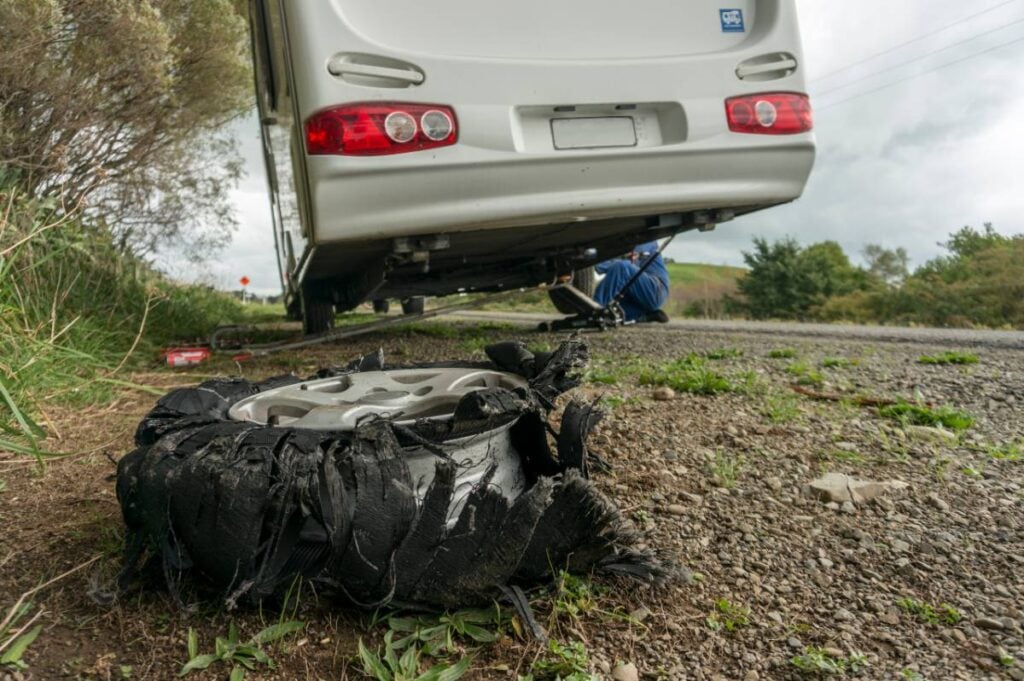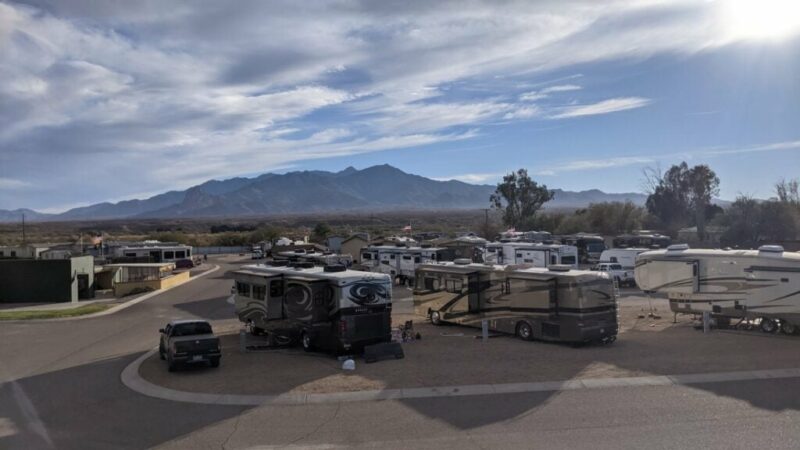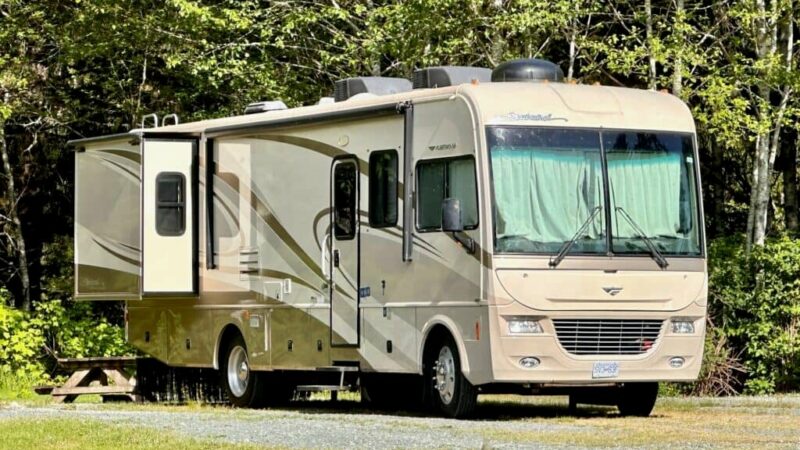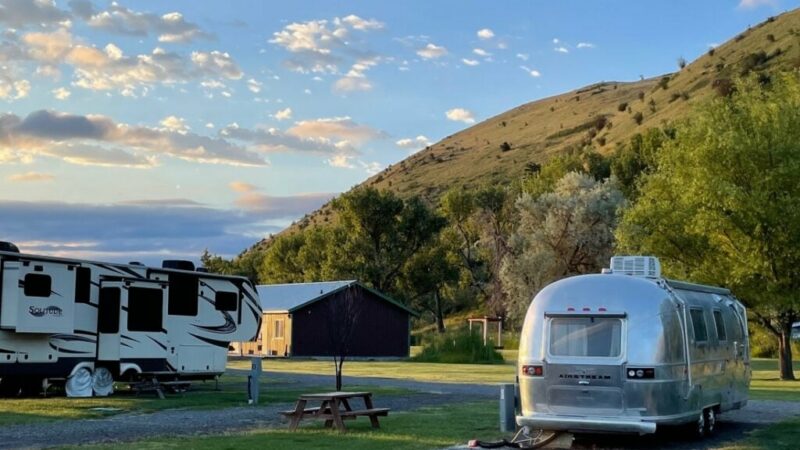When To Replace Camper Tires

When Do Your Camper Tires Need Replacement?
Camper tires are one of the most important parts of any RV. If they’re in bad condition, you won’t be going anywhere!
Replacing tires is inevitable. But tires can also be expensive, so most people don’t want to buy a new set until they absolutely have to. Even though camper tires can last for a good long while, even they have an expiration date.
As a general rule, you should start thinking about replacing your tires once you’ve had them for more than three years. Inspect them at the three-year mark and continue to do so until they’re no longer usable. Most tires will become unsafe at around the five or six-year mark. Some people have managed to make their tires last up to 10 years, but it’s not usually advisable to wait this long because you’re at high risk for a blowout.
Camper tires are a bit different from standard vehicle tires, so it’s important to properly care for them. If you get a flat tire or a blowout while you’re driving an RV, it can be disastrous for you and everyone else on the road. Taking care of your tires will improve the functionality of your RV, improve your fuel efficiency, and ensure that you can take trips for many years to come. Let’s get into it!
How to inspect camper tires
As a general rule, you can use your RV tires for somewhere between three to six years. But that’s a pretty large range of time, and it doesn’t account for the various factors that might shorten or extend the tire lifespan. After all, a poorly-placed nail can pop even brand-new tires!
That’s why it’s important to know how to properly inspect your tires and estimate how long they will last. This is especially important if you bought an RV secondhand because you won’t always know how old the pre-installed tires are.
If you want to check the age of a tire, check the Department of Transportation (DOT) serial number. This is a string of numbers that should be imprinted on the tire itself. The numbers represent the tire manufacturer/plant code, the tire size code, the manufacturer name, and the date the tires were made.
Once you have this information, you can look up the specific make and model of your camper tires and see how long they generally last. There are some brands that are better than others, so depending on the age of the tire and the manufacturer, you may be able to push the lifespan of the tires a bit further.
Warning signs to watch out for
The design of the tire is only part of the battle. You should also know how to inspect your tires before and after a long trip. After a bit of wear and tear, they might start to wear down before your very eyes. You just need to know what to look for.
Obviously, worn down tread is one of the clearest signs that your tire is getting older. You can do the good old penny trick. If you can see Abraham Lincoln’s head when you stick an upside-down penny into the tread, that means they’re starting to wear out.
You should also check the tire pressure. Sometimes there are small leaks and cracks that are invisible to the naked eye. If you frequently notice that one or more of the tires needs to be reinflated, you might have a dud on your hands.
Tire bubbles are also an early warning sign of trouble. Bubbles form when water or air becomes trapped between the layers. This means that there’s a weakness in your camper tires. If bubbles continue to form, that means that the layers of the tire are starting to break down. Bubbles mean that a blowout might be on the horizon.
In addition, debris can become lodged in the tire tread. In most cases, this isn’t serious, but you should still try to remove any rocks or bits of trash that have become wedged into the rubber. Check for punctures and cuts as you do this, and be sure to check the tire pressure again once you remove the debris. After all, it might have been plugging up a leak.
How to extend the lifespan of camper tires
Camper tires are an interesting case because everyone uses their RVs in different ways. If you only take them out for a couple of summer trips, your tires won’t receive nearly as much wear and tear as someone who travels all year long.
Similarly, those who live in cold, icy, rugged areas will probably find that their tires go down much faster compared to those who travel in moderate climates and drive on well-maintained roads.
There are several things you can do to reduce the load on your tires and make them last a bit longer.
Keep them filled to the proper levels
One of the best ways to extend the lifespan of a tire is to keep it properly filled. It can cause problems if your tires are too full or too empty, so you need to find the happy medium. Overfull tires will wear out in the middle, while underinflated tires will wear out along the edges.
A TPMS (tire pressure monitoring system) can help you check the levels of each tire and quickly identify if any of them are leaking. A good TPMS is essential for RVers because they have a lot of tires to worry about. Punctures can appear without warning, so it’s important to have an alert system in place.
Regularly rotate and align camper tires
Additionally, rotating your tires can make all of them last longer. Depending on the weight distribution of your RV, some tires may bear a heavier load than others. If you place all the stress on just a few wheels, they’ll go down much faster than the others. Then you might have to deal with replacing every tire, even the ones that are in pretty good shape.
Aligning your tires can also help extend the lifespan. They’ll run more smoothly and won’t have to fight against each other or the momentum of the RV. Include tire rotation and alignment to your list of regular RV maintenance.
Use tire covers during storage
Most people don’t use their RVs all year long, so there are periods when it sits dormant. But even if the tires aren’t being used, they can still become damaged. Prolonged exposure to sunlight, ozone, and weather changes can break down the tire walls.
That’s why RV tire covers are important! These provide a layer of protection and can insulate your tire against changes in temperature and humidity. Light-colored tire covers like these are great because they will deflect most of the heat from the sun rather than absorb it.
Keep camper tires clean
It might seem simple, but keeping your tires clean can go a long way. We already talked about the importance of removing debris, but it doesn’t hurt to give the tires a rinse with some soap and water. Next time you clean the RV, don’t forget to give the tires a bit of attention too!
Don’t exceed RV weight limits
Tires are put under a lot of pressure, especially camper tires. They have to deal with friction from the road as well as a lot of weight from above. RVs are naturally pretty large and heavy, so they put a lot of strain on the tires.
To minimize the risk of a blowout, keep your RV weight within the recommended weight limits. This will also ensure the health of your engine and the frame of the tow vehicle (if you use one).
Lift your RV during storage (if possible)
Speaking of reducing the load for the tires, think about how you store your RV. If it sits for long periods of time, the weight can start to sag down on the tires. This damages them and shortens their lifespan.
If it’s possible, try to prop up your RV during storage so that the tires aren’t constantly bearing the full weight. Use jacks and other stabilizing equipment to help out.
Inspect camper tires before and after trips
Finally, regularly inspect your tires for signs of wear and tear. The three to six-year guideline is helpful, but every set of RV tires is unique, so yours may last longer or shorter than expected.
Watch out for the warning signs we mentioned above, and act as soon as possible if you think there’s a problem.
Track your RV maintenance
Make sure you keep track of all your RV maintenance and repairs with an online tool such as RV LIFE Maintenance. Not only can you keep all of your documents in one place, but you’ll also receive timely reminders when maintenance is due to help you avoid costly repairs and potentially serious accidents.
Related articles:
- Are Used Tires a Good Idea for Your RV?
- Do You Really Need an RV Spare Tire Cover?
- 8 Things to Consider When Replacing Tires for an RV
The post When To Replace Camper Tires appeared first on RV LIFE.







